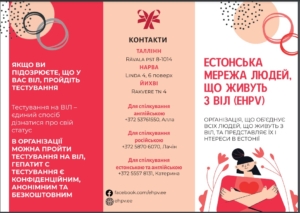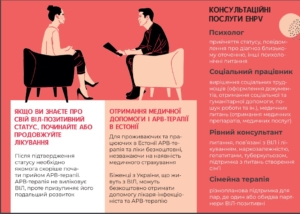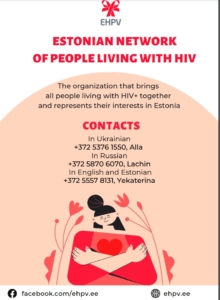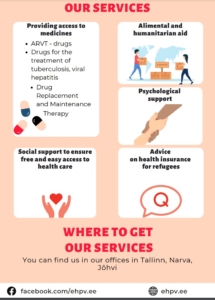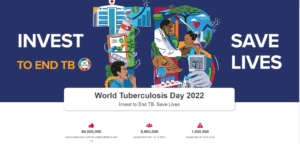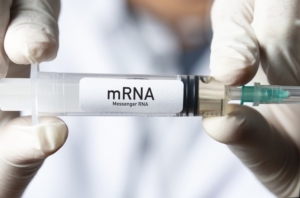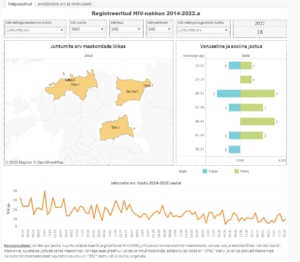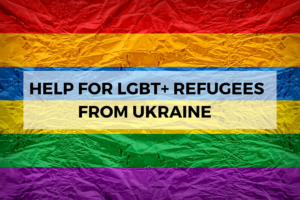International AIDS Candlelight Memorial Day
The Estonian Network of People Living with HIV (www.ehpv.ee), on the eve of International AIDS Candlelight Memorial Day, which is traditionally celebrated on the third Sunday of May, addressesresidents of Estonia, the government and municipalities of cities.
We all live through difficult times. We know that COVID-19 is a serious disease that has affected the country. Experience gained from the HIV epidemic can also be used to combat COVID-19.
We urge you to pay attention to people affected by COVID-19 who need our support. As it was with AIDS response, governments must work with communities to find solutions on local level.
Government, ministries, municipalities, and the population itself must respect the rights and dignity of people affected by COVID-19. Key populations should not bear the brunt of stigma and discrimination as a result of the COVID-19 pandemic.
Forty years of fighting the HIV epidemic is an experience based on human rights and community orientation, which are key points in the fight against any epidemic. Building trust between affected communities, government, and the health system is also needed to effectively and quickly respond to the rapid spread of the pandemic.
We can say that viruses have captured our consciousness and our lives, but not the virus itself is important, but its consequences – stigma and discrimination. When the people infected by such “viruses”, it becomes important for us: what is your skin color, gender, age, gender identity, sexual orientation, religion, nationality, the presence of a disease, etc. At the same time, the deeper the virus penetrates our consciousness, the more it forces to manifest: bias, injustice, violence. As a result, stigmatized person is left alone with his problem.
International AIDS Candlelight Memorial Day, is one of the oldest and largest mobilization campaigns in the world to raise public awareness of HIV and AIDS in the world, serves as an important means of global solidarity, breaking down barriers of stigma and discrimination and giving hope to new generations.
The HIV epidemiological situation in Estonia continues to be difficult. The persistent high incidence of HIV infection, the steady growth rate of new infections, the increase in the total number of HIV-infected people, the “growing up” of the infection and its activation in the general population due to the increase in sexual transmission are real today. Over the years in Estonia, 10265 people were diagnosed with HIV, including 567 people with AIDS.
Modern medicine have allowed HIV infection to pass from the category of fatal to chronic. Having started treatment with antiretroviral drugs in time, and following all the doctor’s instructions, people living with HIV live a long and full life. There is no cure for AIDS, but there is an opportunity to slow down its development. As Estonia has access to antiretroviral therapy, HIV / AIDS must be seen as a disease, not a death sentence. But even now, death from AIDS arises due to the fact that an HIV-positive person is not able to receive specialized medical services and antiretroviral treatment on time.
Our common vision is zero new HIV cases, zero discrimination against people living with HIV and zero AIDS-related deaths, but this requires investment, open and honest dialogue about it between the government and society. When we recognize the scale of the effects of viruses on our lives, we will seek to minimize the risk of contracting them.
On the International AIDS Candlelight Memorial Day, we want to recall one more time that the human right to health is the basic right of every person. And no one has the right to deprive it! We wish, as never before, to mobilize all our efforts to eradicate stigma and discrimination, violation of human rights and bring a clear understanding that we are all vulnerable.
We hope that the COVID-19 pandemic, since the HIV epidemic did not quite cope with this at the time, will change the attitude generally to any problems in society related with viruses. It is very important to support those who are trying to confront these problems, regardless of the situation, age, gender, etc. It has long been clear to the PLHIV community that viruses do not forgive a frivolous attitude towards them. We hope that on this day this awareness will come to you.
Join us to light a candle for memory of people who died from AIDS and COVID-19.
- Light a memorial candle on the terrace, balcony, garden or wherever it is comfortable for you
- Remember and pray for relatives, friends, acquaintances who have died of AIDS or COVID-19
- Share your memory and photos with us on social networks and donot forget to tag us #ehpv or @ EHPV – Estonian HIV-Positive Network.
Info:
+372 5870 6070 (in Russian)
+372 5616 7097 (in Estonian)
+372 57816023 (in English)
ehpv@ehpv.ee
“We Remember. We Take Action. We Live Beyond HIV!”
We are excited to share with you the details of the International AIDS Candlelight Memorial 2022, which will be held on Sunday May 15, 2022
The Memorial was started in 1983 by people living with HIV, to remember the lives lost to AIDS and to honour those who dedicated their lives to helping people living with and affected by HIV.
The Estonian Network PLWHIV over the years has continued to coordinate the efforts to make the day memorable and continue to mobilise our communities in solidarity in Estonia.
We are excited to share with you the recently updated International AIDS Candlelight Memorial website where we have information on global and local eventswith our perennial theme “We Remember. We Take Action. We Live Beyond HIV!”
https://www.candlelightmemorial.net/
Given the safety measures adopted by in response to the COVID-19 outbreak, like in the previous year Estonian Network PLWHIV encourages everyone to mark the day individually or virtually.
A more active role on social media will be necessary though to make this year’s commemoration a meaningful one.



